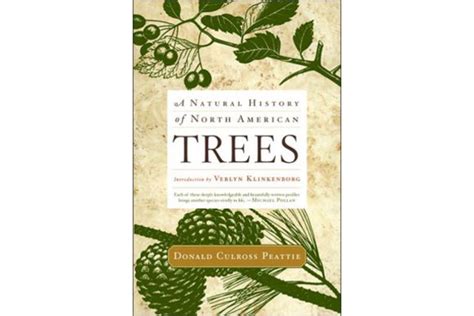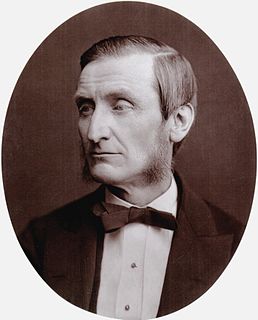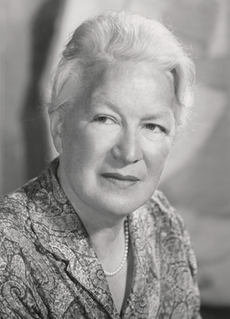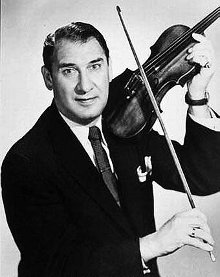A Quote by Henry Wadsworth Longfellow
Alas! it is not till time, with reckless hand, has torn out half the leaves from the Book of Human Life to light the fires of passion with from day to day, that man begins to see that the leaves which remain are few in number.
Related Quotes
As the brain of man is the speck of dust in the universe that thinks, so the leaves—the fern and the needled pine and the latticed frond and the seaweed ribbon—perceive the light in a fundamental and constructive sense. … Their leaves see the light, as my eyes can never do. … They impound its stellar energy, and with that force they make life out of the elements.
To comprehend a man's life, it is necessary to know not merely what he does but also what he purposely leaves undone. There is a limit to the work that can be got out of a human body or a human brain, and he is a wise man who wastes no energy on pursuits for which he is not fitted; and he is till wiser who, from among the things that he can do well, chooses and resolutely follows the best.
GATHERING LEAVES Spades take up leaves No better than spoons, And bags full of leaves Are light as balloons. I make a great noise Of rustling all day Like rabbit and deer Running away. But the mountains I raise Elude my embrace, Flowing over my arms And into my face. I may load and unload Again and again Till I fill the whole shed, And what have I then? Next to nothing for weight, And since they grew duller From contact with earth, Next to nothing for color. Next to nothing for use. But a crop is a crop, And who's to say where The harvest shall stop?
The selective winnowing of time leaves only a few recognizable individuals behind for the historian to light on. Thus the historian who finds the human being more interesting than what the human being has done must inevitably endow the comparatively few individuals he can identify with too great an importance in relation to their time. Even so, I prefer this overestimate to the opposite method which treats developments as though they were the massive anonymous waves of an unhuman sea or pulverizes the fallible surviving records of human life into the grey dust of statistics.
Sometimes I spend all day trying to count the leaves on a single tree... Of course I have to give up, but by then I'm half crazy with the wonder of it--the abundance of the leaves, the quietness of the branches, the hopelessness of my effort. And I am in that delicious and important place, roaring with laughter, full of earth-praise.
A man goes to a barbershop and asks, How many ahead of me? Five. The man leaves. He comes back the next day and asks, How many ahead of me? Four. The man leaves. He comes back the next day and asks, How many ahead of me? Six. The man leaves, and the barber says to another, Follow that man! The man comes back and says, He goes to your house!
They never exhale, the trees; on a very windy day, they rustle and inhale, and then the leaves and the branches all tremble as though something means to strangle the life from them. The sky watches on. The world is filled with anticipation, as if to wonder if this day will be a great day, or a horrible day, or the last day.
All mankind is one volume. When one man dies, a chapter is not torn out of the book, but translated into a better language. And every chapter must be translated. God employs several translators; some pieces are translated by age, some by sickness, some by war, some by justice. But God's hand shall bind up all our scattered leaves again for that library where every book shall live open to one another
As you get older, the heart shed its leaves like a tree. You cannot hold out against certain winds. Each day tears away a few more leaves; and then there are the storms that break off several branches at one go. And while nature’s greenery grows back again in the spring, that of the heart never grows back.
One realizes that human relationships are the tragic necessity of human life; that they can never be wholly satisfactory, that every ego is half the time greedily seeking them, and half the time pulling away from them. In those simple relationships of loving husband and wife, affectionate sisters, children and grandmother, there are innumerable shades of sweetness and anguish which make up the pattern of our lives day by day, though they are not down in the list of subjects from which the conventional novelist works.
Culture looks beyond machinery, culture hates hatred; culture has one great passion--the passion for sweetness and light. It has one even yet greater, the passion for making them all prevail. It is not satisfied till we all come to a perfect man; it knows that the sweetness and light of the few must be imperfect until the raw and unkindly masses of humanity are touched with sweetness and light.
I never had a dog that showed a human fear of death. Death, to a dog, is the final unavoidable compulsion, the least ineluctable scent on a fearsome trail, but they like to face it alone, going out into the woods, among the leaves, if there are any leaves when their time comes, enduring without sentimental human distraction the Last Loneliness, which they are wise enough to know cannot be shared by anyone.






































